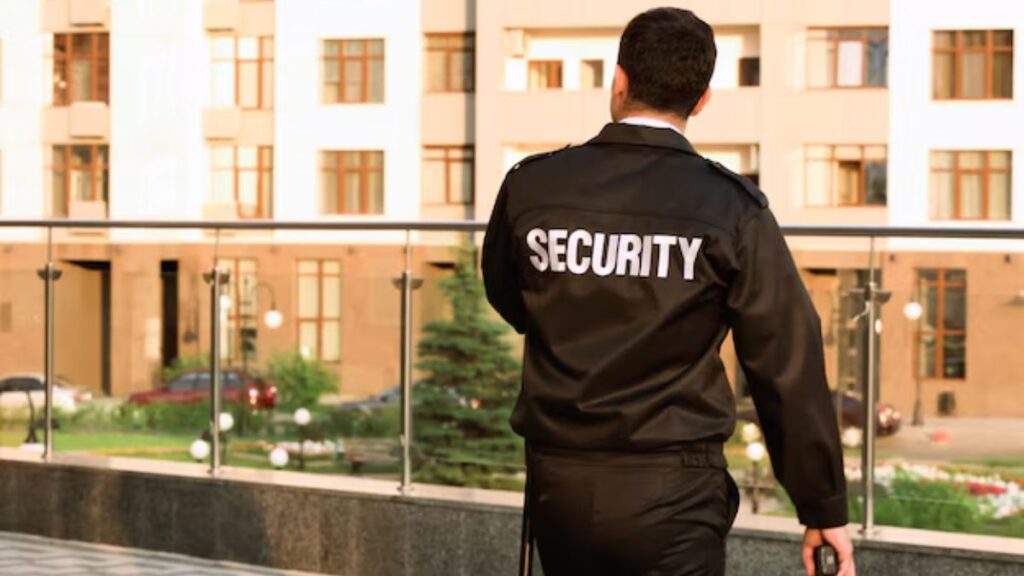Becoming a security guard is more than just wearing a uniform and standing watch. Security guards are pivotal in maintaining safety and order in various environments, from retail stores to corporate offices, construction sites, and large events. Their primary responsibilities include monitoring premises, deterring criminal activities, and responding to emergencies. Understanding these responsibilities is the first step toward pursuing this career.
Why Choose a Career as a Security Guard?
A career as a security guard provides a range of benefits, making it an appealing choice for many. It offers job stability in a field with consistently high demand, as security needs continue to expand across industries. Flexible hours allow individuals to find work schedules that suit their lifestyles, whether part-time, full-time, or shift-based. This career also opens doors to diverse environments, including retail stores, corporate offices, hospitals, and event venues. Importantly, becoming a security guard doesn’t require extensive formal education, making it accessible while still allowing individuals to make a meaningful impact by protecting people and property within their communities.
Key Skills and Traits for Success
Successful security guards share certain skills and traits that enable them to excel. These include strong observation skills, physical fitness, excellent communication, and the ability to remain calm under pressure. Security guards must also be detail-oriented and proactive, quickly identifying and addressing potential threats before they escalate. Developing these skills is crucial for thriving in this profession.
Licensing and Certification
In most regions, security guards must obtain a license to work, with requirements often including a background check, training, and passing a written exam. For those in Queensland, obtaining a security licence QLD is a necessary step to meet legal standards. Some employers may also require additional certifications, such as CPR or first aid. Keeping licenses and certifications up to date is essential for staying compliant with regulations and advancing in the security profession, ensuring guards remain qualified and effective in their roles.
Educational Requirements and Training
While most security guard positions don’t require a college degree, a high school diploma or equivalent is typically necessary. Many employers also provide on-the-job training to teach new hires about specific protocols and procedures. However, obtaining formal training through accredited security programs can significantly enhance job prospects. These programs often cover topics such as legal and ethical standards, emergency response, and surveillance techniques.
Types of Security Guard Positions
Security guards can explore a variety of roles, tailoring their careers to their interests and skill sets. Common specializations include armed and unarmed positions, mobile patrol, event security, and corporate security. Armed security guards often require additional training and licensing due to the responsibility of handling firearms and responding to high-risk situations.
Mobile patrol guards are constantly on the move, ensuring the security of multiple locations, while event security involves managing crowds and maintaining order at gatherings. Corporate security focuses on safeguarding employees and assets in office settings. By selecting a specialization that aligns with personal strengths and career goals, security guards can carve out a fulfilling niche in this dynamic and growing industry.
The Hiring Process
The hiring process for security guards generally involves submitting a resume, undergoing an interview, and passing background checks. Highlighting relevant experience, skills, and certifications on your resume can make a significant difference. During interviews, employers may assess situational awareness, problem-solving skills, and knowledge of security procedures. Being prepared for these evaluations can improve your chances of landing the job.
Day-to-Day Responsibilities
The daily tasks of a security guard can vary greatly depending on the workplace. Common responsibilities include patrolling the premises, monitoring surveillance systems, verifying visitor credentials, and responding to alarms or disturbances. Security guards must also document incidents and report them to their supervisors or law enforcement when necessary. This dynamic role requires adaptability and vigilance.
Challenges in the Security Field
Being a security guard comes with a unique set of challenges that require both mental and physical preparedness. Guards often face stressful situations, such as responding to emergencies or managing confrontational individuals, which can test their patience and decision-making skills. Long hours of standing, patrolling, or monitoring surveillance systems can be physically demanding and require sustained focus.
To overcome these challenges, developing resilience and effective stress management techniques is essential. Staying informed about workplace policies, practicing de-escalation tactics, and honing problem-solving skills can enhance safety and efficiency. By proactively addressing these difficulties, security guards can perform their duties with confidence while maintaining a secure environment for themselves and those they protect.
Opportunities for Growth and Advancement
The industry offers plenty of growth opportunities. With experience and additional training, security guards can advance to supervisory roles or specialize in fields like cybersecurity or private investigation. Pursuing higher education in criminal justice or security management can further broaden career prospects. Demonstrating a strong work ethic and a commitment to professional development is key to climbing the career ladder.
Networking and Building Connections
Networking within the security industry is a powerful tool for career advancement and professional development. Building connections through professional organizations, industry conferences, and social events can help security guards tap into new opportunities and expand their knowledge base.
Networking often leads to valuable referrals for jobs, mentorship from experienced professionals, and access to insights about emerging trends and best practices in the field. Engaging with colleagues and industry leaders fosters collaboration and opens doors to specialized roles or promotions. Staying active in industry-related discussions, whether online or in person, is crucial for maintaining relevance and keeping up with technological advancements, ensuring long-term success in this dynamic and evolving profession.
Staying Updated on Industry Trends
The security industry is constantly evolving, with advancements in technology and changes in regulations shaping the landscape. Security guards must stay informed about new tools, techniques, and legal requirements to remain effective in their roles. Embracing continuous learning and adapting to change are essential for staying ahead in this dynamic profession.
Becoming a security guard is a rewarding journey for individuals who value safety, vigilance, and community service. By understanding the responsibilities, developing the necessary skills, and staying committed to professional growth, aspiring security guards can build a successful and fulfilling career. Whether you’re just starting or looking to advance, this guide provides the foundation needed to navigate the path to becoming a trusted protector of people and property.







